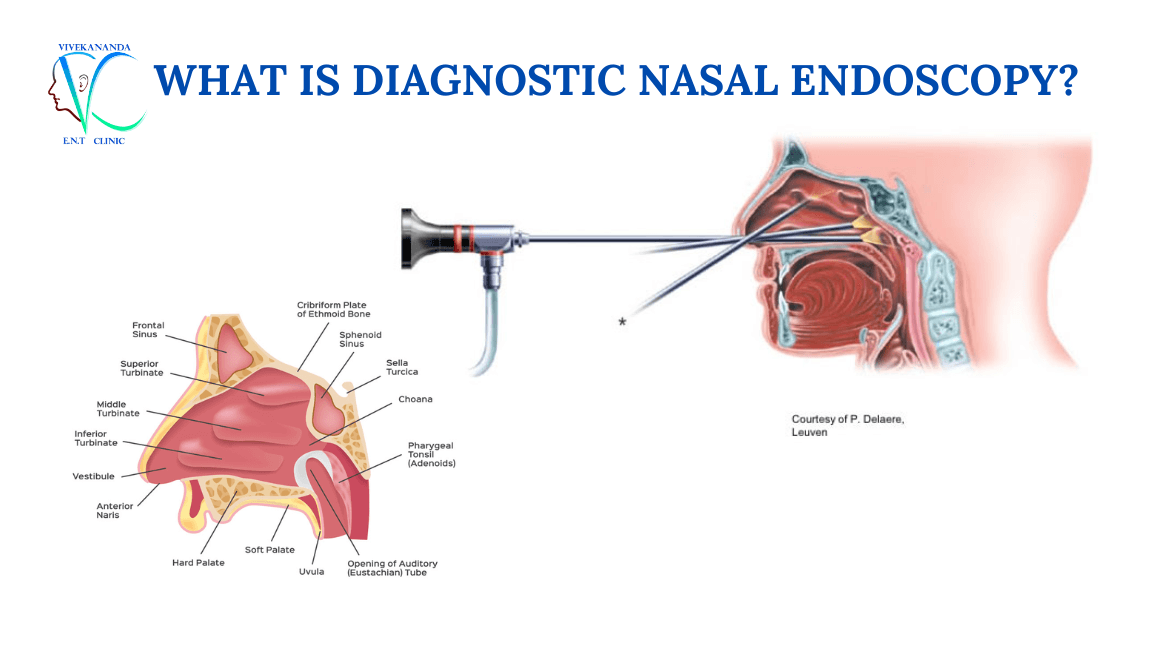Vertigo is more than just dizziness—it’s a sensation where you or your surroundings seem to spin or tilt. If you’re experiencing symptoms like nausea, loss of balance, or ringing in the ears, you might be dealing with vertigo. At Vivekananda ENT Clinic, Kolkata, our expert vertigo specialist Dr. Pinaki Mazumder offers comprehensive diagnosis and treatment to bring you relief. Keep reading to understand what vertigo is, its causes, symptoms, and why early medical attention is crucial.

What is Vertigo?
Types of Vertigo
- Peripheral Vertigo: The most common type caused by inner ear or vestibular nerve issues.
- Central Vertigo: Less common and caused by brain-related problems like strokes or tumors.
Vertigo Causes
Vertigo is often caused by problems in the inner ear or brain. The most common vertigo causes include:
- Benign Paroxysmal Positional Vertigo (BPPV): Small calcium crystals (canaliths) become dislodged in the inner ear, causing balance problems.
- Meniere’s Disease: Fluid buildup in the inner ear leads to vertigo, tinnitus, and hearing loss.
- Vestibular Neuritis or Labyrinthitis: Viral infections causing inflammation of the inner ear or nerves responsible for balance.
- Acoustic Neuroma: A benign tumor on the auditory nerve.
- Ototoxicity: Damage caused by certain medications.
Other causes include migraine headaches, head or neck injuries, stroke or brain tumors, prolonged bed rest, and multiple sclerosis (MS).
If you’re experiencing these symptoms, consult a vertigo specialist in Kolkata, like Dr. Mazumder at Vivekananda ENT Clinic, for expert diagnosis.
Vertigo Symptoms
Symptoms vary in severity and duration but often include:
- Sensation of spinning or tilting.
- Loss of balance or unsteadiness.
- Nausea or vomiting.
- Tinnitus (ringing in the ears).
- Hearing loss in one or both ears.
- Nystagmus (uncontrollable eye movements).
- Headaches or sweating.
Diagnosis of Vertigo
Diagnosing vertigo involves a detailed medical history and specific tests, such as:
- Audiometric Testing: Evaluates hearing levels and balance.
- Head Impulse Test: Tests eye movement in response to head motion.
- MRI or CT Scans: Identifies brain or nerve issues.
- Fukuda-Unterberger Test: Assesses balance.
- Vestibular Tests: Determines if vertigo is due to inner ear or brain issues.
At Vivekananda ENT Clinic, Kolkata, our cutting-edge diagnostic tools help identify the root cause of your vertigo for accurate treatment.
Vertigo Treatment Options
Treatment depends on the underlying cause of vertigo. Options include:
Repositioning Maneuvers
Techniques like the Epley maneuver reposition dislodged calcium crystals causing BPPV. These are safe and highly effective when performed by a vertigo specialist.
Medications
Antihistamines or motion sickness medicines to manage symptoms like nausea. Steroids or antibiotics to treat infections or inflammation.
Vestibular Rehabilitation Therapy
Physical therapy exercises strengthen the vestibular system, improving balance and reducing vertigo episodes.
Surgery
Rare but may be needed for conditions like acoustic neuromas or severe inner ear damage.
Lifestyle Modifications
- Sleeping with your head elevated.
- Moving slowly to avoid triggering vertigo episodes.
- Avoiding known triggers like loud noise or stress.
For personalized vertigo treatment, visit Vivekananda ENT Clinic in Kolkata.
Why Choose Vivekananda ENT Clinic in Kolkata?
- Expert Care: Led by Dr. Pinaki Mazumder, a renowned ENT doctor in Kolkata with years of experience in treating vertigo.
- Comprehensive Diagnosis: Advanced tools and techniques for accurate results.
- Specialized Treatments: Repositioning maneuvers, intratympanic injections, and more.
- Patient-Centered Approach: Personalized treatment plans tailored to individual needs.
When searching for the best ENT doctor near me or the top ENT specialist in Kolkata, Vivekananda ENT Clinic is your trusted destination.
When Should You See a Vertigo Specialist?
Seek immediate medical attention if you experience:
- Sudden or severe vertigo.
- Persistent dizziness or spinning sensation.
- Hearing loss or ringing in the ears.
- Nausea and vomiting that doesn’t subside.
- Difficulty walking or balancing.
Dr. Pinaki Mazumder, the top ENT specialist in Kolkata, specializes in diagnosing and treating vertigo and related disorders.
Conclusion
Vertigo can disrupt your daily life, but with the right care, you can find relief. At Vivekananda ENT Clinic in Kolkata, we offer world-class diagnosis and treatment for vertigo. Book your appointment with Dr. Pinaki Mazumder, a trusted vertigo specialist in Kolkata, and regain control of your balance and quality of life.
If you’re struggling with vertigo symptoms, visit Vivekananda ENT Clinic, Kolkata, or call us to book your appointment today!










